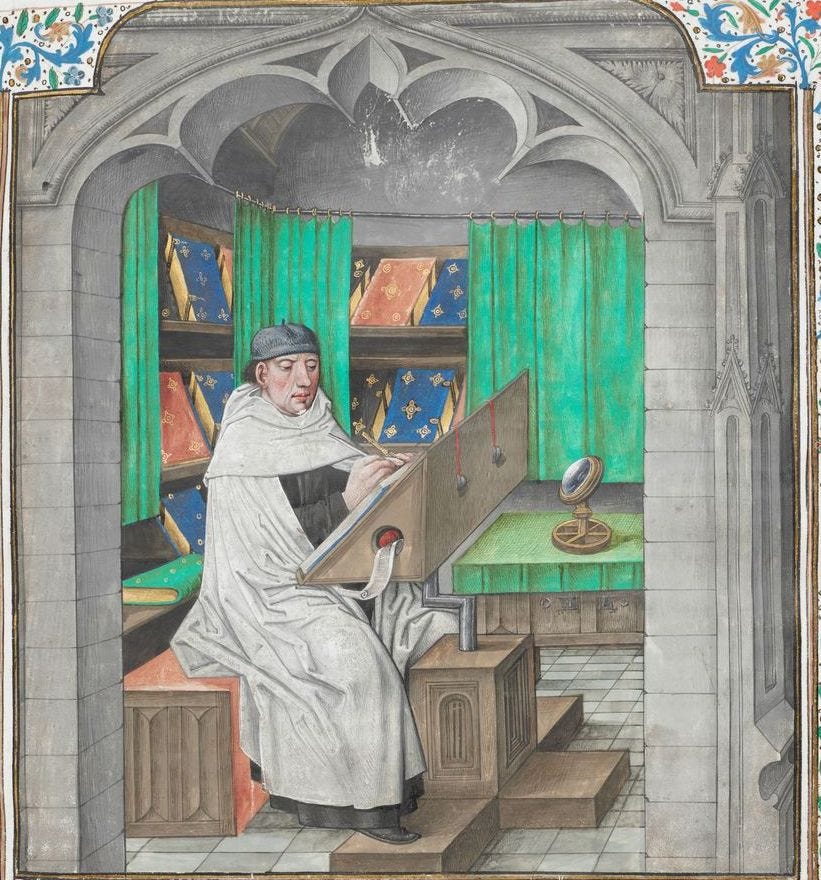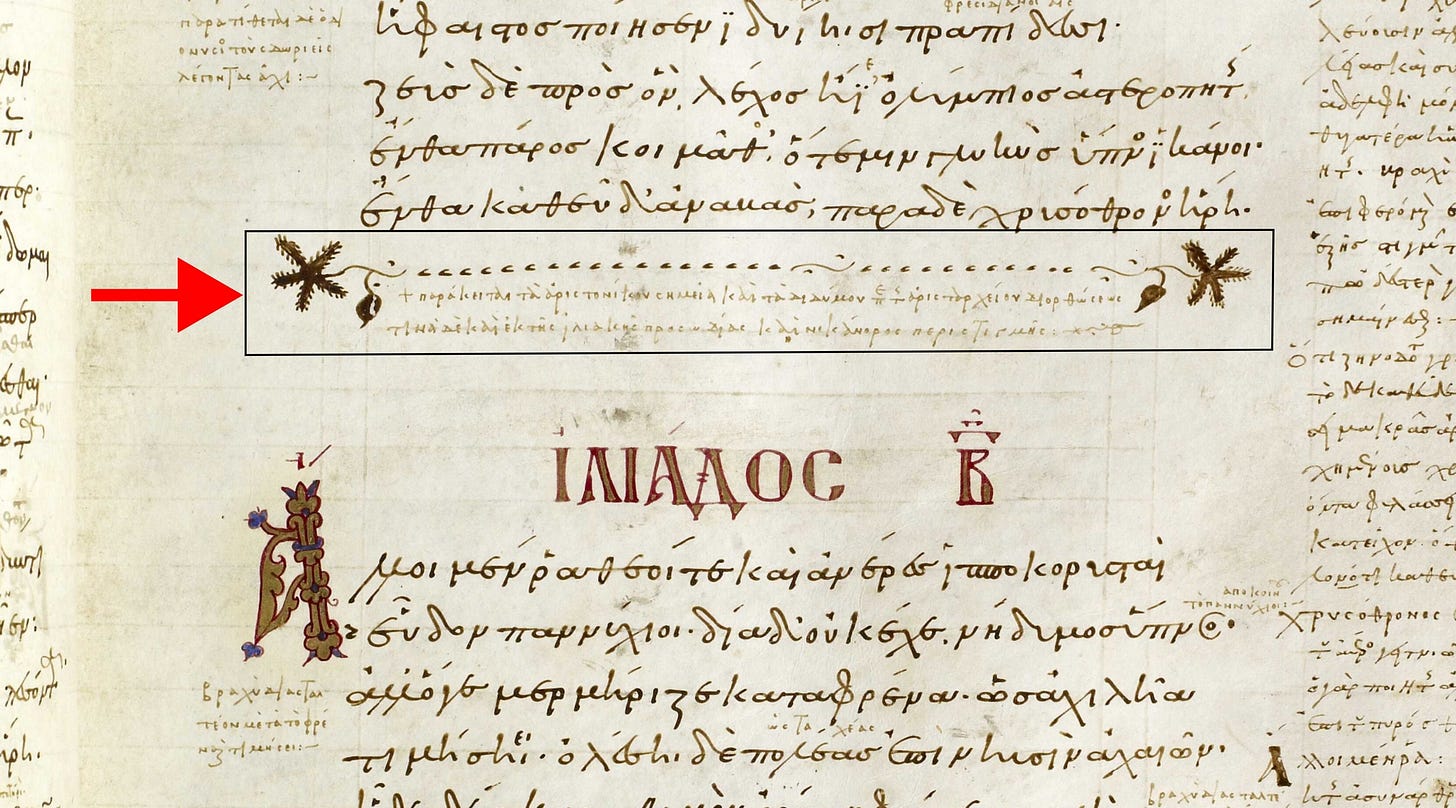How do we know what the ancient Greeks said?
…Culture Cross is a monthly newsletter dedicated to exploring that question.
Posts are sorted into four categories (more on them below):
Why did ancient Greek texts survive? Why is it important?
There are no surviving texts from the hands of Aristotle, or Euclid, or Marcus Aurelius, or even Jesus and his Apostles — whose works were originally written in Greek. The same is true for all ancient Greek literature. The literature survives in the form of copies and fragments, often from nameless scribes who lived a thousand years removed from the initial creation of the text.
With an extraordinary amount of effort people across the Mediterranean, Europe, the Middle East, and now the whole planet have preserved ancient Greek texts for thousands of years. But they didn’t exactly “preserve” them. They copied them, they created them, they engaged with them, they altered them — for their own societies in their own time.
When you want to study ancient Greece — whether for its philosophy, mathematics, drama, democracy, medicine, religion… you must first peer through a thick and opaque lens, covered in individuals’ fingerprints from civilisations before you: librarians of Rome, priests of Egypt, tutors of Constantinople, translators of Baghdad, monks of France, inventors of Italy, ambassadors of India, astronomers of Poland, poets of England.
Answering “How do we know what the ancient Greeks said?” mandates a dissection of the breadth of history from antiquity to today, illuminating the very foundations of modern societies.
Where to get started?
I organise Culture Cross into multiple sections.
These posts provide an introductory overview of nine key innovations — from the invention of writing to the formation of modern science — that helped propel Greek texts from the foggy mists of time before 700BC until today. I also wrote a guest post on the Classical Futurist.
Want to get into the small details? These posts explore the particular books that contain the textual material that tell us so much about ancient Greece. I’ve even written a guide to understanding how to decipher the historical information encoded in one of the most majestic manuscripts in the world.
Are you travelling to Greece or the Mediterranean? These posts form the newest section of the newsletter, where I explore the physical remains of ancient sites in relief of what ancient Greeks said about those places in antiquity. I am also working on podcasts, videos, and other travel-related materials.
Who writes Culture Cross?
Hello! I am James Ilias Binks, a Canadian and Greek ethnographic and historical researcher. When I’m not writing Culture Cross, I research Canadian history, lead tour groups, and work underwater as a scuba divemaster. My academic training was in Anthropology from the University of British Columbia. My undergraduate thesis took me to the Indian Himalaya for six months to elucidate the impact that infrastructural developments have on pilgrim’s experiences of ancient religious practices and high-alpine environments. I have also worked on post-disaster reconstruction work in Nepal, publishing an article on ethnographic collaboration and a resource guide database.
I am an amateur in the study of ancient Greece. I am part-Greek myself and have spent much time in Greece, including working as a scuba diving guide on Crete (and seeing some underwater Minoan pottery at Pseira!). But my interest in ancient Greece is borne not out of this connection, but in the vast influence that Greek culture has had on countless societies in the past, and how that shapes our world today. I intend to delve deeper into this topic in future posts, so please stay tuned and consider subscribing to receive my monthly posts.
How can an amateur research ancient Greek history?
I always share my sources in the form of an annotated bibliography that I update with each new post. The bibliography also contains information for how independent researchers can still access materials without access to a university library. I hope it can serve as a general resource.
If you are looking for a source of any of my research, or are looking for resources, please contact me directly and I would be happy to help.





